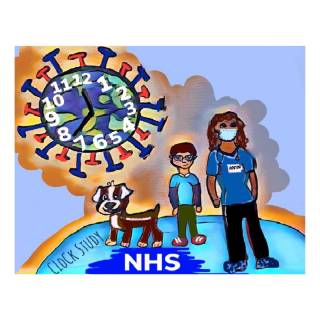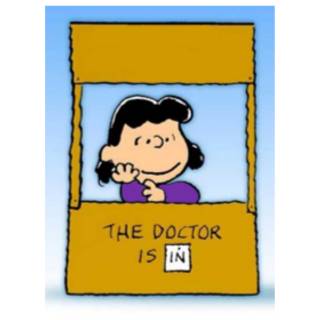We are a multi-disciplinary team of researchers with an interest in improving mental health needs in young people with long-term physical illnesses
Many children with long-term physical health problems have mental health needs and children with neurological problems are particularly likely to have emotional and behavioural difficulties. These psychological problems often have a significant impact on both the child and their family, and their school experience. These problems are nobody's fault and may be related to the underlying physical health problems, but they are often easily treated.
Our research focuses on evaluating the psychological treatments that have been shown to work for young people with mental health disorders in those who also have physical health conditions. We are also interested in developing and evaluating new interventions and improving access to psychological treatments in children with physical health problems.
Ensuring that our work can be translated into routine clinical care is a priority and fundamental to the research we conduct, which is why we work closely with the Psychological Medicine Team at Great Ormond Street Hospital.
Our Team
Anaïs D'oelsnitz (Research Assistant)
Angel Shittu (Honorary Research Assistant)
Dr Anna Coughtrey (Senior Clinical Research Fellow)
Anna Roach (PhD Student)
Elana Moore (Assistant Psychologist & Research Assistant)
Emily Davey (PhD Student)
Fiona Newlands (PhD Student)
Dr Isobel Heyman (Consultant Child & Adolescent Psychiatrist)
Jake Dudley (Honorary Research Assistant)
Laila (Yuk Ying) Xu (Research Assistant)
Leonard Jones (Admin Assistant)
Dr Manjula Nugawela (Research Fellow in Quantitative Methods)
Mariam Shah (Research Assistant)
Millie Wagstaff (PhD Student)
Natalia Rojas (Research Assistant)
Paige Kolasinska (Honorary Research Assistant)
Poonam Jetha (Senior Clinical Research Fellow)
Rowan Bhopal (Honorary Research Assistant)
Professor Roz Shafran (Professor of Translational Psychology)
Dr Sophie Bennett (Senior Research Fellow)
Tom King (PhD Student)
Patient and Public Involvement (PPI)
At the Psychological Medicine Team, we believe that Patient and Public Involvement within our health and social care research strengthens its quality and relevance to patients. Sharing this core belief within the team means that PPI is at the heart of all the research we conduct. Please see the individual projects to learn more about how PPI has shaped them.
Incorporating the voices of children and young people at key stages of all our work has strengthened our research and made our projects relevant for the population we seek to serve.
Our Research
Mental Health Intervention for Children with Epilepsy (MICE)

A five-year NIHR programme grant study of a new psychological treatment for childhood anxiety, depression and behavioural problems in children with epilepsy.
Children and Young People with Long Covid (CLoCk)

A three-year NIHR programme grant study aiming to derive a research definition of Long Covid in non-hospitalised children and young people.
Mental Health Drop-in Centre (The Lucy Project)

PhD Student Projects
Anna Roach
Anna's PhD is focused on brief psychological interventions for children and young people with chronic health conditions. It builds on a previous research study, The Lucy Booth, that evaluated a mental health drop-in centre in a paediatric hospital, offering accessible, low-intensity early intervention services for patients and families concerned about their mental health. Anna's PhD seeks to use, develop and evaluate the drop-in centre model at other paediatric hospitals and services across the UK.
Emily Davey
The aim of Emily’s PhD project is to develop and evaluate a low intensity psychological intervention for children and young people with eating disorders. This involves modifying existing self-help interventions with input from key stakeholders, and a feasibility study to establish the preliminary effectiveness, feasibility and acceptability of the intervention.
Fiona Newlands
Fiona’s PhD is part of the children and young people with long COVID (CLoCk) study. Funded by the Beryl Alexander Charity, the aim of the PhD is to investigate the relationship between children’s mental health and recovery from post-viral infection with a view towards evaluating effective interventions.
Millie Wagstaff
The existing Mental Health in Epilepsy (MICE) study aims to find out whether we can improve mental health treatments for children with epilepsy. The purpose of Millie's research is to extend these findings by combing the data gathered in the MICE study with national databases that hold records for all children and young people in England about their performance on tests at school and admissions to hospital. By combining the information, we can find out whether treating mental health problems in children affects important outcomes identified by families, like how well children perform at school, the impact on their parents’ own mental health and how it affects hospital admissions.
Tom King
Tom's PhD will examine the extent to which different models of mental health-care provision are associated with mental and physical health outcomes for children with chronic illness. He will first aim to understand what current practice looks like (e.g. whether there are mental health clinicians working in the paediatric team, referral pathways for psychological support available etc.), before using a mixed-methods approach to evaluate the advantages and disadvantages of the different models in use. The overall objective is to inform UK mental health policy for children and young people with chronic physical illnesses.
 Close
Close

